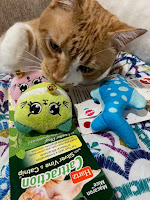Comprehensive Guide to Adult Cat Care: Ensuring a Healthy and Happy Feline Companion
Cats make wonderful companions, offering affection, entertainment, and a unique charm that captivates cat lovers around the world. As your feline friend transitions from a playful kitten to a mature adult, their needs evolve, requiring a thoughtful and tailored approach to care. In this comprehensive guide, we'll explore essential aspects of adult cat care, covering nutrition, grooming, veterinary care, environmental enrichment, and the importance of establishing a strong bond with your furry friend.
Nutrition
A well-balanced and nutritious diet is crucial for maintaining your adult cat's health and vitality. Unlike kittens, adult cats have different dietary requirements that support their energy levels, weight management, and overall well-being. Here are some key considerations:
1. High-Quality Cat Food
Choose a premium, commercially available cat food that meets the nutritional standards set by reputable organizations. Opt for formulations designed specifically for adult cats to ensure they receive the right balance of proteins, fats, and carbohydrates.
2. Portion Control
Adult cats are prone to weight gain, which can lead to various health issues. Practice portion control to prevent overfeeding, and follow feeding guidelines provided on the cat food packaging. Consult your veterinarian to determine the ideal daily calorie intake for your cat's age, weight, and activity level.
Check out food: Fancy feast gravy lovers, Purina One Dry Natural Cat Food
3. Fresh Water
Ensure your cat has access to fresh and clean water at all times. Hydration is essential for their overall health, especially for urinary tract function.
Grooming
Maintaining your adult cat's coat, nails, and overall hygiene is an integral part of their care routine. While cats are known for their self-grooming habits, they may still require assistance in certain areas:
1. Brushing
Regular brushing helps prevent matting and reduces shedding. The frequency of brushing depends on your cat's breed, coat length, and individual preferences. Short-haired cats may benefit from weekly brushing, while long-haired breeds may require daily attention.
2. Nail Trimming
Keep your cat's nails trimmed to prevent them from becoming too long and causing discomfort. Invest in quality cat nail clippers and accustom your cat to the process gradually. If you're unsure about trimming nails, consult your veterinarian or a professional groomer for guidance.
3. Dental Care
Dental health is often overlooked but is crucial for your cat's overall well-being. Introduce a dental care routine by using cat-friendly toothpaste and a soft brush. Dental treats and toys designed to promote dental health can also be beneficial.
Veterinary Care
Regular veterinary check-ups are essential to monitor your cat's health and address any potential issues promptly. Here's a guideline for veterinary care:
1. Annual Check-ups
Schedule annual veterinary appointments for comprehensive health assessments, vaccinations, and preventive care. Regular check-ups allow your veterinarian to detect and address any health concerns early on.
2. Parasite Prevention
Administer flea, tick, and worm prevention treatments as recommended by your veterinarian. Parasite control is crucial for maintaining your cat's well-being and preventing the spread of diseases.
3. Spaying/Neutering
If your cat hasn't been spayed or neutered, discuss the option with your veterinarian. This not only helps control the cat population but also provides health benefits and reduces certain behavioral issues.
Environmental Enrichment
Cats are natural hunters and explorers, and providing an enriched environment is essential for their mental and physical well-being. Consider the following tips:1. Interactive Toys
Offer a variety of toys that stimulate your cat's senses and encourage play. Interactive toys, such as feather wands and puzzle feeders, engage your cat's hunting instincts and provide mental stimulation.
2. Scratching Posts
Cats have a natural instinct to scratch, which helps maintain healthy claws and allows them to mark their territory. Provide scratching posts or pads in different areas of your home to satisfy this instinct.
3. Safe Outdoor Access
If possible, create a safe outdoor space or use cat enclosures to allow your cat to experience the outdoors. Ensure the area is secure and free from potential dangers.
Bonding and Socialization
Building a strong bond with your adult cat is crucial for a fulfilling and harmonious relationship. Here are some tips for fostering a deep connection:
1. Quality Time
Spend dedicated, quality time with your cat each day. Whether it's playing, grooming, or simply relaxing together, these moments strengthen the bond between you and your feline friend.
2. Respect Their Independence
While cats enjoy companionship, they also value their independence. Allow your cat to initiate interactions and respect their need for alone time.
3. Positive Reinforcement
Use positive reinforcement techniques to encourage desired behaviors. Reward your cat with treats, praise, or affection when they exhibit good behavior, reinforcing a positive connection between you and your pet.
Caring for an adult cat requires a holistic approach that encompasses nutrition, grooming, veterinary care, environmental enrichment, and a strong emotional bond. By understanding and addressing the specific needs of your adult cat, you can ensure they lead a happy, healthy, and fulfilling life as your cherished companion. Regular attention, love, and proper care contribute to a harmonious relationship, allowing both you and your cat to enjoy the many joys of feline companionship.







No comments:
Post a Comment